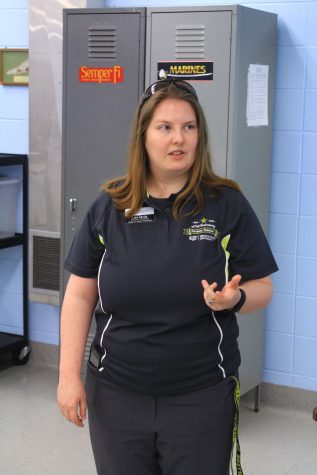Tenure track takes many turns for professors
Tenure is necessary on university campuses.
Tenure allows a professor to exercise academic freedom in their research and their teaching. It gives them the liberty to decide how they want to teach their class without being influenced by parents or the university because they have a guaranteed position until retirement. Not all professors live up to the ideal.
But considerable evidence suggests that tenure, in practice, has become more of a security blanket for comfortable professors than an inspiration for academia to develop and nurture conflicting ideas, Carrol Dadisman said in her article Politically correct conformity chills freedom on campuses, Knight-Ridder Newspapers.
“I think that most people think that all tenure means is that you have a job for life,” Gary Toops, WSU professor of Modern and Classical languages, said. “I think the average person looking in at academia from the outside might think once you get tenure you have no incentive to continue research and teaching and that you can slack off, but that’s not the case. Anybody who would do that would see their salary gradually eroding.”
There are three ranks of a professor; assistant, associate and full. In mid-September of an assistant professor’s sixth year they must go through mandatory tenure review.
A professor is evaluated on teaching (40 percent), research (40 percent), and service (20 percent). They must keep an organized box filled with past articles, publications and research for their 25-page dossier. The professors’ departments, college and the university review the dossier. If a professor is denied tenure they are given a seventh year (severance year) to find a position at another university.
Once they receive tenure they must decide how having a guaranteed job will affect their teaching, knowing the obligations set by the university and the consequences of performing inadequately.
Some professors do lose their jobs. In 1990 a tenured, anthropology professor was fired based on a violation of ethics and failure to perform academic duties.
However, most professors don’t pose a problem to the system, considering the hard-earned title and benefits they would be losing.
The first five years of an assistant professor are very stressful because they are professionally evaluated constantly and can be terminated easily.
“Once you receive tenure it’s comforting,” Rick Armstrong, WSU associate professor of communications, said. “Unless you really mess up … you could be fired, but that’s very rare.”
Armstrong used the expression “dead wood” to describe the few tenured professors that do the bare minimum.
“I had a teacher that I know was here for many, many years and I’m sure he was tenured,” Sarah Astle, LAS senior, said. “We would go in and watch videos every Tuesday and Thursday and that is how he taught the class.”
These “dead wood” teachers might be suffering consequences students can’t see.
“In the state of Kansas a tenured professor is evaluated every year,” Ron Matson, interim Dean of Liberal Arts and Science, said. “If they score unsatisfactory three times in a five-year period that professor can be terminated.”
A professor is also evaluated each year for a promotion, a bonus or the title of Full Professor, the next step after Associate Professor.
“You have to at least double your production and your work,” Matson said. “You must be in the process of developing national reputation in your field.”
“I know there are some teachers I really don’t want to be teachers anymore,” Haley Sauder, LAS senior, said. “But then there are some that it is a good thing to keep them here because they are really good and the university doesn’t want to lose them.”
This is the price some universities must pay. Tenure can benefit the university by pushing faculty to continue improving their research and keeping faculty that perform well in the classroom, but can also make it hard to remove faculty that have failed to meet the requirements.









